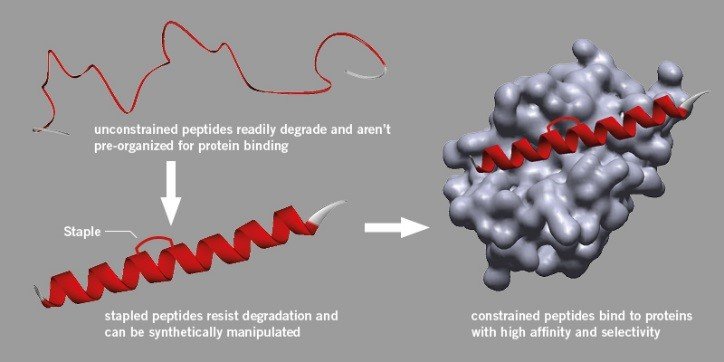New approach set to make peptide stapling widely available

Scientists have created a new method to structure peptides, which they say will be cheaper and make the process of using stapled peptides in drug discovery much more widely available. The method developed by the nine-strong University of Leeds team, and exploiting synthetic chemistry developed at University College London, is more versatile, cheaper, completely reversible and results in peptides whose pharmacokinetic properties, such as solubility could be easily tuned, according to Professor Andrew Wilson, who led the study. The approach could allow skilled scientists to constrain a peptide, deliver it to a particular cell and then unconstrain it, preventing it from leaving the cell again.
